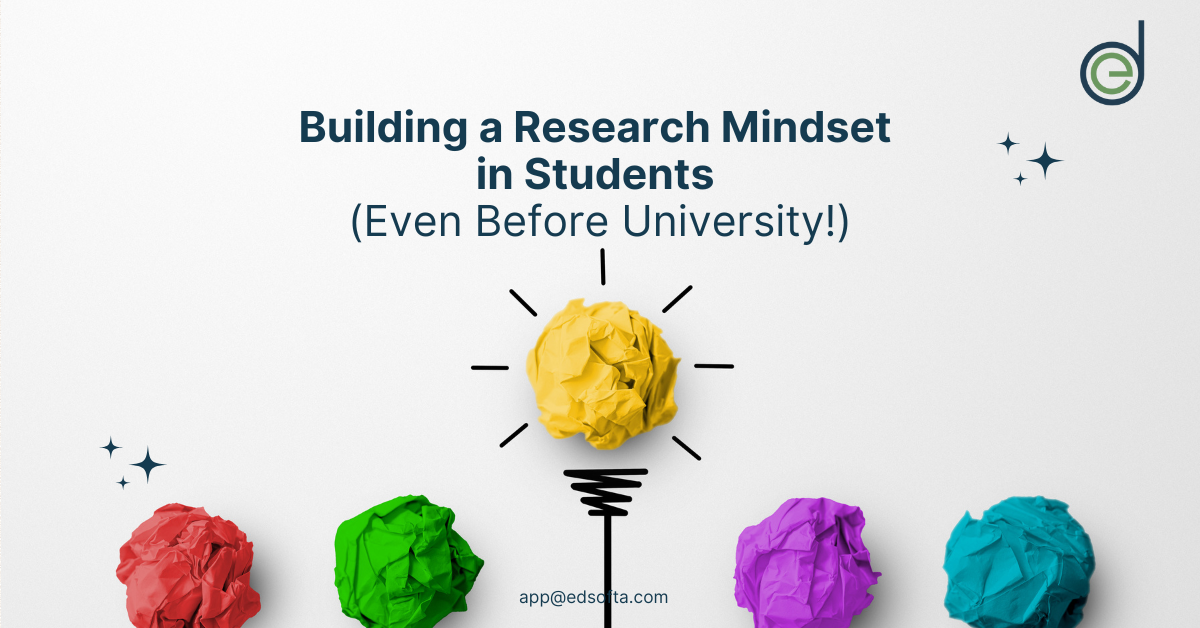Introduction: Research Starts Long Before University

Research, the ability to ask questions, seek answers, and think critically, is one of the most essential skills any student can learn. But how often do we start building this mindset before university? Year after year, we prepare students for the JAMB and UTME exams. We teach them formulas, facts, and formats. But we often forget to equip them with the tools that university (and life) will demand most: how to research.
Let’s be honest. Give a student a topic like “Causes of Climate Change” and watch what happens. They copy and paste the full sentence into Google and blindly select the first link. What follows is a block of text copied word-for-word. No filtering, summarising, or thinking.
That’s not research. That’s information dumping, and sadly, it sets students up for frustration when they enter the more rigorous, analysis-based learning environments of higher education. The good news? We can fix it, and we don’t need fancy tools or expensive subscriptions to get started.
Let’s walk through practical ways to build a research mindset in your students, even before they ever step foot on a university campus.
Teach Them What Research Isn’t

Before students learn what research is, they need to unlearn what it isn’t.
Research is not:
- Typing a full question into Google and clicking the first link.
- Copying word-for-word answers from WhatsApp groups or past papers.
- Gathering as many articles as possible and hoping one of them fits.
Instead, help your students understand that research is a process, one that involves asking focused questions, evaluating sources, thinking critically, and summarising findings in their own words.
This reframing helps students realise that research isn’t about gathering data, it’s about engaging with it.
Break Topics into Searchable Keywords

Now, here’s where the magic begins.
Take any topic, say, “How pollution affects agriculture in Nigeria”, and help students identify keywords. For example:
- Pollution
- Agriculture
- Nigeria
- Effects
Now ask them to search with combinations of these keywords rather than full sentences. This not only improves their search results but also teaches them to think about the core of a question.
Over time, they’ll begin to intuitively dissect broad questions into manageable search terms, an invaluable skill at any academic level.
Help Them Compare and Question Sources

Let’s say your student finds two articles on climate change, one from Wikipedia and another from a news platform. What’s next?
Ask them to:
- Read both
- Identify what’s similar
- Spot any contradictions
- Question the reliability of each source
This step builds critical thinking, one of the most important elements of real research. Students learn not to accept every source at face value, but to dig deeper, analyse, and form their conclusions.
The goal here is not perfection. The goal is curiosity. When students begin to ask, “Why does this article say something different?”, you know the research mindset is kicking in.
Teach Them to Summarise in Their Own Words
Once a student has read and compared a few sources, the next step is key: summarising in their own words.
This part can be tough at first. Students may feel unsure or tempted to repeat what they’ve read. But keep encouraging them to:
- Use their voice
- Focus on understanding, not copying
- Keep it short and clear
A simple way to reinforce this is through short class presentations. After 5 minutes of reading, have students explain what they’ve learned in 2–3 sentences. This not only improves retention but also boosts confidence and communication skills.
Try 10-Minute Research Tasks in Class
You don’t need a whole lesson plan to start building this mindset. A quick 10-minute activity can do wonders.
Here’s how:
- Give your students a short topic
- Let them research it online or from textbooks for 5 minutes
- Ask them to explain it to the class in 2–3 sentences
It’s fast, fun, and effective. Better still, it becomes a routine they can apply across subjects, from science to social studies, and eventually, in university essays and projects.
Remember: You’re Preparing Thinkers, Not Just Test Takers

At the end of the day, teaching students how to research is about more than school. It’s about preparing them for life. From writing term papers in university to solving real-world problems in the future, research is the foundation of growth, innovation, and informed decision-making.
So the next time you’re preparing students for JAMB, UTME, or any academic milestone, remember this: their grades matter, yes, but their ability to think, search, and learn independently matters even more.
Start with one task. One topic. One class. And watch the research mindset take root.
Final Call to Action:
Looking to boost your students’ thinking skills beyond the exam hall?
Start with research. Start today. Try a short research task this week and let us know how it goes!



